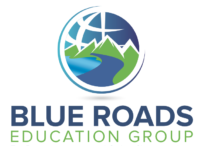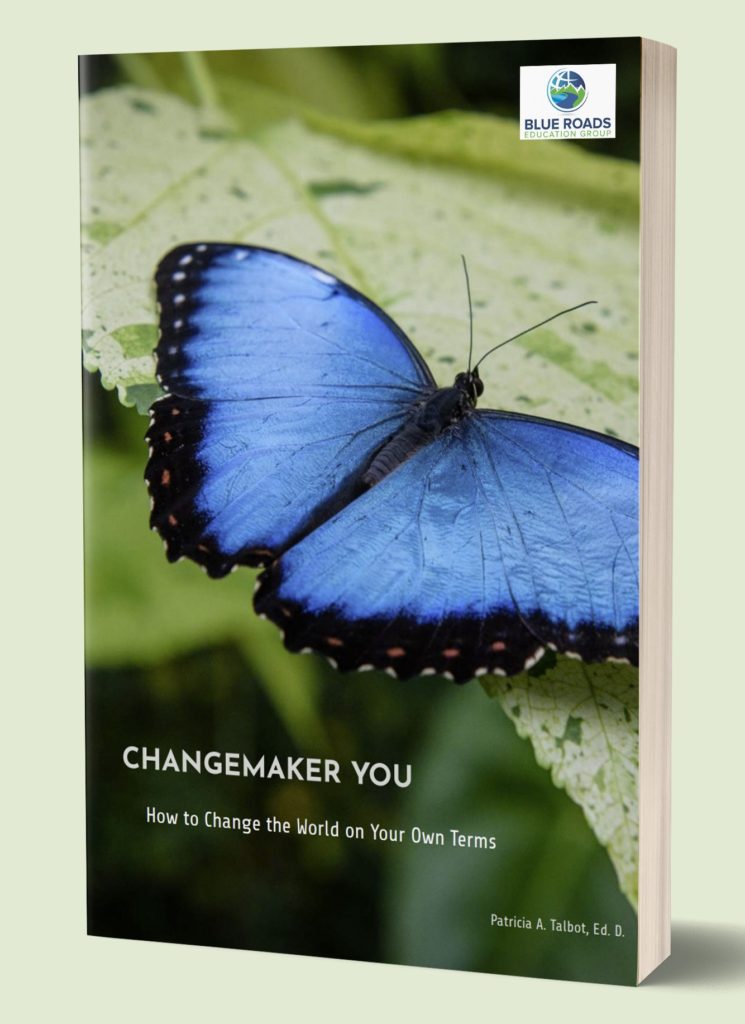Featuring High School Seniors
Kolby Brown and Molly McPherson
It's never too soon to be a Changemaker! In my first two-person interview for the Changemaker Series, I welcomed two rising high school seniors, Kolby Brown and Molly McPherson, to talk about their work for racial justice in our community. These two young leaders recently organized a protest that took place prior to a meeting of the Montgomery County School Board on June 16th. I wanted to find out how they got together to create such a meaningful and well attended event in such a short time and what motivated them to do so.
As with other stories in this series, we used the “Homegrown Solutions for a Patchwork World” framework to guide our conversation. Tune in to the video here or the podcast version to hear the entirety of the exchange. Read on for a summary of our rich and rewarding conversation.
Homegrown Kolby
Kolby is the middle son of four spread across twenty years and all raised in Christiansburg, Virginia where they have attended Montgomery County Schools. His family has always been social and active in the community, but Kolby describes himself as an introvert. In spite of his earlier preference to remain behind the scenes, his capacity for leadership has started to shine more recently as his passion for racial justice has been stoked by visible inequities and tragedies like the brutal and public killing of George Floyd. With this newfound confidence, Kolby says,
I have been able to advocate for myself and for others in a much better way and in a way that can create change. Starting this past year, I've really become more involved in leadership and advocating for other students. At the end of the school year, this whole topic of conversation when it comes to racial problems we're facing in Montgomery County reemerged. We have to make change and we have to move forward, not just for ourselves, but for future generations of students that are coming through this school system. I'm excited for where we're at and I'm excited to see where we can go.
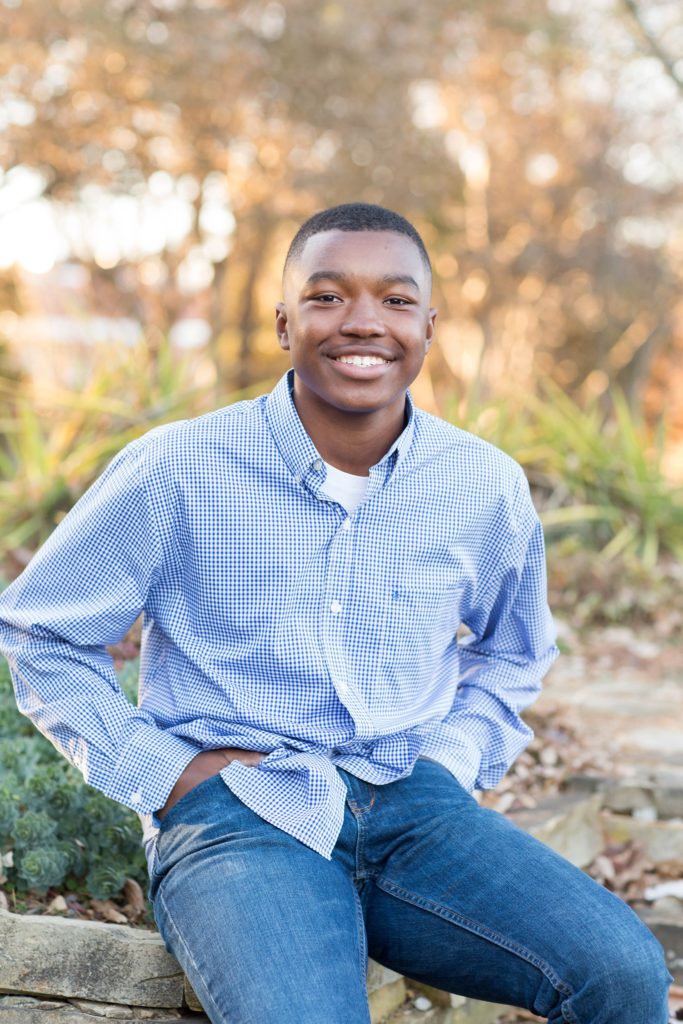
Homegrown Molly
Like Kolby, Molly is a rising senior, but at the high school in the neighboring town of Blacksburg. Both of her parents are educators who’ve worked in the local school division and at Virginia Tech. This fact made her aware of issues that affect teachers and schools from a very young age. Her own leadership journey includes advocacy for the needs of teachers who may not always be in a position to speak for themselves. She’s also been on a journey to develop awareness of racial inequities and injustice in her own school. As a result, she was ready and willing to help when Kolby reached out in early June even though they did not yet know one another.

Something needs to change and I feel we need to use our voices, especially because we've grown up here, and our parents have been in the county. Our siblings have been in the county. We have the roots in the county and we want to change things for kids to come.
Solution-Focused Seniors
It was clear from the beginning of the conversation that both Molly and Kolby wanted to get to the heart of the issues early in our talk. The idea for the protest grew out of an attempt Kolby made to ask Superintendent Miear for a statement of solidarity with Black students in light of ongoing brutality against Black men across the country.
With a strong sense of right and wrong, Molly was incensed when she heard of Kolby’s unsuccessful efforts in this regard.
What does that say to the students about what you care about? If you don't listen to them, how are they going to feel when you make a decision. Making sure that teachers and parents and students all have equal access to materials and other things is just so important.
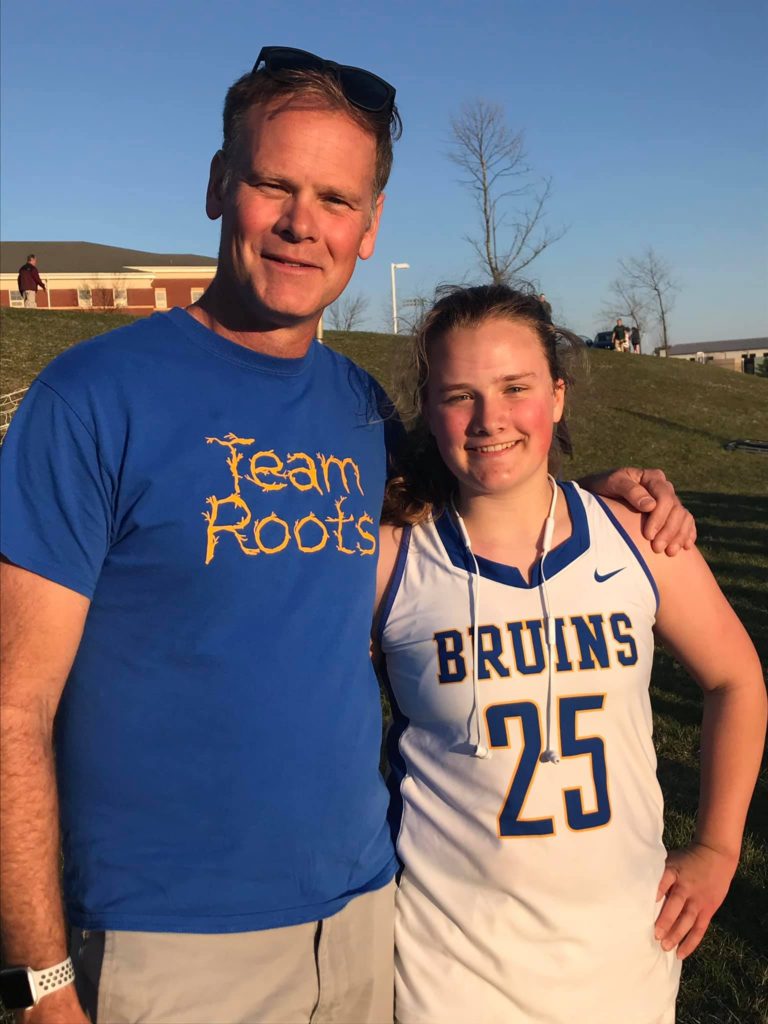
When Kolby took the floor again, he concurred with Molly’s perspective and added some of his own.
I feel like we should all be advocates for each other or at least be willing to be, and to acknowledge those problems. For me, being a student in Southwest Virginia, I've always experienced and witnessed problems with race in our schools growing up…For me, I feel that I have to work twice as hard just to get some of the attention from my teachers that I need, not just attention on me, but attention to my ambitions and what I want to achieve and where I want to go.
We can use our voice because our voices are powerful. After contacting the school board office members and administration at my school, I've been able to see what we've been able to do. I've also been able to see that there's so much more that we can do. There's so much more support and attention that we need to get to the places we want to go.
Kolby wasn’t satisfied with the response he received from the superintendent. Since it was already a couple of weeks after George Floyd’s murder, he was hoping for quick action. Instead he received a document summarizing the “good things that have happened for African American students in the county”. A week later, he and Molly led a protest before the school board meeting where a statement of solidarity was passed, but not without some objections. (Read more about the protest and the school board meeting here . To be fair, the students gave me permission to reach out to the superintendent as well. Dr. Miear expressed his sincere commitment to racial justice and equity and reminds us that he has to work with the board on releasing statements like the one Kolby was seeking. )
It all seemed much too slow to Kolby and Molly.
Three weeks after the George Floyd killing -that's when the statement of solidarity came out. For me, that's way too long for an education system to simply show support for a group of students who need it. That's where my frustration has come from. We need as much help as possible and especially from people who can really create change.
He feels like they now have the attention of school officials and it’s time to “keep pushing.”
As the conversation turned to the “Patchwork” quadrant in the framework and the question of working across diverse groups, Molly and Kolby took turns reflecting on the importance of building connections across experiences and perspectives. They used their newfound friendship and partnership for equity as an example.
Kolby’s Patchwork
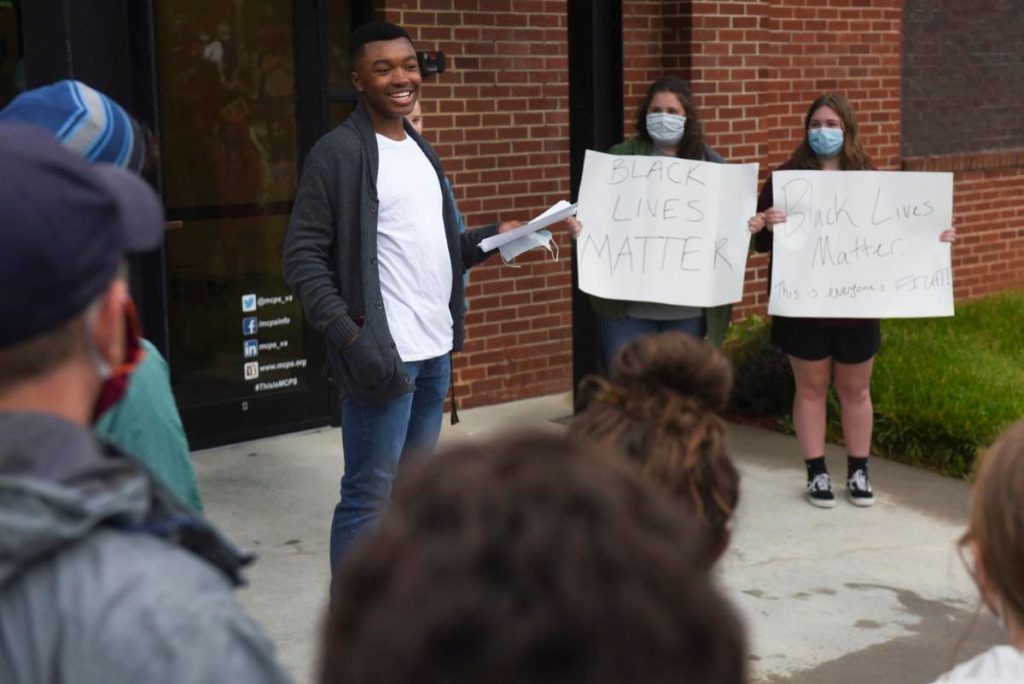
Support is support. You need it to create change. You can't do it by yourself. As much as I would love to just solve every problem right now, right here. I wouldn't be able to do that without support from community leaders and student leaders from across the county.
Before this whole thing started, I didn't really think I had that much support. Then I contacted Molly and I was like, Whoa! This is a student from a different school that has a different background and she is willing to stand here and fight and stand in solidarity with me. That kind of made me realize that this can actually happen. This is a fight that does not have to be fought for much longer. It is important to get the attention of others who don't have the same background, the same knowledge, the same experience as you because if you get someone with the same experience or knowledge as you, what (new) are they bringing to the table? What different information and knowledge are they able to put to this movement? If Molly and I had the same experience and we believed everything in the same way and saw everything the same view, there would be no way for us to actually make change because we already believe the same things. We have discussion and we have conversation so that we can come together and create a solution that can positively affect everybody, not just a particular group. Yes, racial discrimination is harmful to one group, but it affects everybody. It affects every single person.
Molly’s Patchwork
Molly expressed enthusiastic agreement with Kolby’s take on the value of working across perspectives and experiences. She expanded upon his thoughts to include the important role of adults, even in youth-led movements. She also raised an issue she’d learned from @sheathescholar via Twitter about the problem with expecting people who’ve experienced trauma to feel compelled to relive that trauma by telling their stories over and over again.
I don't think you need to hear their pain to know there is an issue. I feel forcing students to recount their experiences can cause even more harm to those students. I wish the system didn't require them to relive their trauma in order for people to understand what's going on. It is so important in situations like these to be able to recognize a problem without making it worse.
She believes getting parents and community members involved is important for this reason as well.
Because in the end, they're the ones whose voices matter the most.
By this she means, they are the ones who vote and put our leaders into their positions of power. As much as she believes student voices should be more powerful, she knows that, for now, that’s not usually the case.
We would be unstoppable if we get members of the community and any other adults who can vote to work with the students who can't and to come to a cohesive decision on any matter. I think that's the most efficient way to make change.

Kolby picked up the conversation speaking to the issue of reliving trauma that Molly describes.
She's right. It‘s incredibly painful for anybody to recount the traumas that they've lived. Of course, you run the risk of bringing that trauma back to their lives. I have definitely dealt with racial problems and I am comfortable with retelling them and bringing them back up. But there's students that aren't comfortable with that and who are we to make them recount them…to say it or describe it again? And who are we to say that if you don't recount it, you're not going to get justice or the problem is not going to change?
Changemakers Kolby and Molly
When asked to recount the story of how they found one another and made the protest happen, they took turns reiterating their process.
Kolby reported on how he reached out to school board member, Penny Franklin, after his disappointment over the exchange with Dr. Miear. As a “strong advocate for students of color in this county for 20 years or so”, Kolby knew Ms. Franklin was the one who could guide him in his next steps. She put him in touch with Molly as a student she’d heard was working for racial justice at another school in the district.
From there we kind of just accelerated… It was two days before the actual protest we organized.
Molly designed a flyer and started distributing it through social media.
It kind of blew up…We just got it out and the community really pushed it around.
Molly and Kolby then met online with some students from Flint, Michigan who had done something similar in their own community. The Flint students advised them on steps to take including informing the police department and organizing their list of demands. Kolby and Molly contacted the police and found out they were already aware so they set about devising their list of demands available here.
The demands included, among other things: 1. bias training for all school personnel which they now understand will be happening and mandatory, 2. reexamination of the dress code and 3. involving stakeholders in policies that affect them – like discipline.
In reality, Kolby and Molly didn’t meet in person until about a half hour before the protest but they give each other a lot of credit for how well it all went off.
There were about two hundred people in attendance at the protest, walking with them, holding signs of support and clapping enthusiastically during Kolby’s comments. You can read the local newspaper account of what happened here.
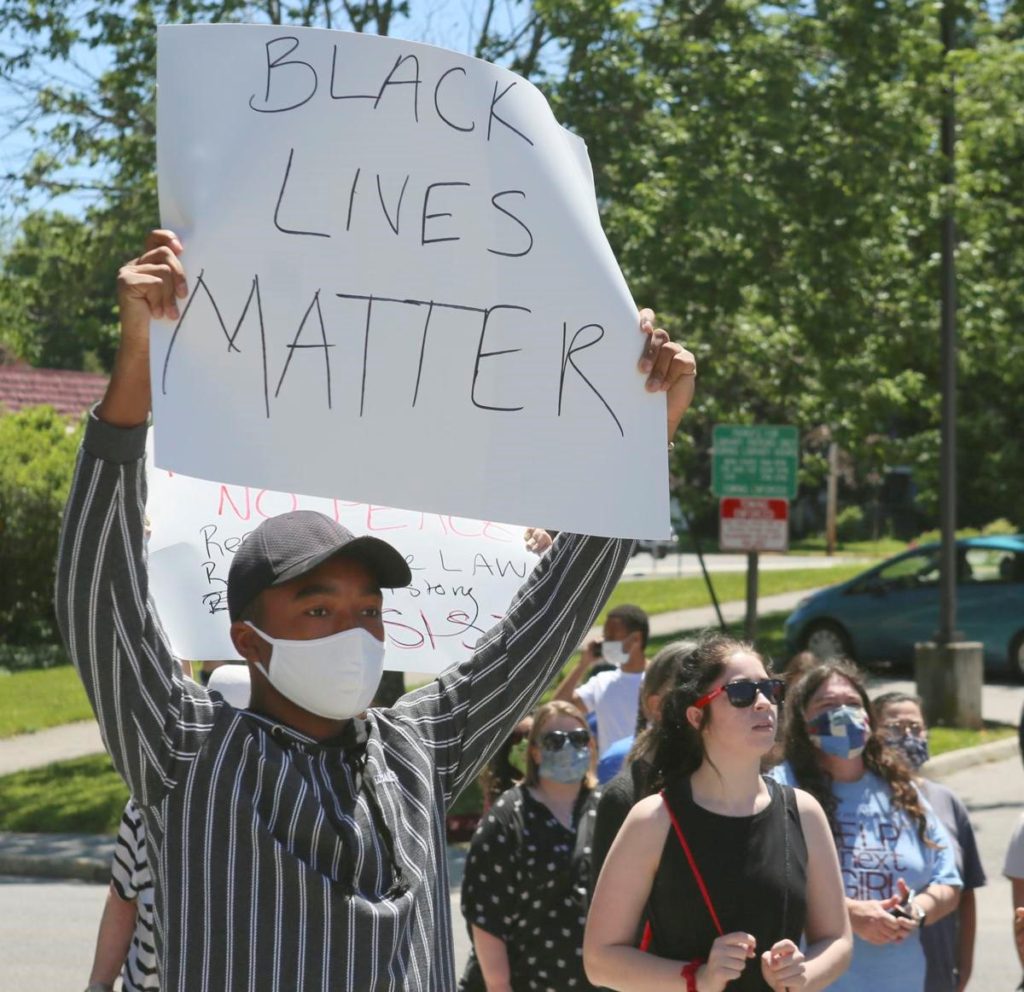
Kolby says, “I really wasn't expecting that number to be completely honest, but we were pleasantly surprised at the turnout and that really gave me hope. It showed me that the community wants to see change. So that was very exciting.”
Molly reflects “There were a lot of students there, but what surprised me was that there were a lot of parents present without their students with them. I was really happy to see that they were there and that they're willing to fight for not only their kids, but also their classmates …”
Overall, they both were really pleased with the turn out and support they received. When asked about developments since that June event, they reported some limited contact with School Board Member, Penny Franklin and some intentional outreach they've done with organizations like Virginia Organizing and the historic Christiansburg Institute. They are hoping for some curricular changes that would include awareness of the importance of Christiansburg Institute to the history of their community and the black experience in our area.
Molly puts it this way:
We don't know our local history. I think it could start now and teach kids of all ages; it can't just be high school or middle school. It has to start with young kids or they're going to grow up unaware of their local history. Because in history class, when we talk about slavery we tend to think, Oh, it was in Norfolk, Williamsburg, Jamestown…
They don't realize that slaves were sold in downtown Christiansburg. I learned that yesterday! I had no idea. They don't realize how big of a deal it was until it's in their backyard. They don't realize what actually happened until it hits home. I think that's what we've missed in the past… “The State” has been pushing curriculum and teaching to the SOL's. I think that mindset needs to go to better educate our students. We have to put emphasis on local histories before we look at the big picture. Students don't realize how big the big picture is until they see the smaller picture of their local histories.
There’s no doubt that these two changemakers are just getting started. They say they…
Plan to keep the pressure on because we've gotten a lot of input and the community is energized right now.
———————————————————————————————-
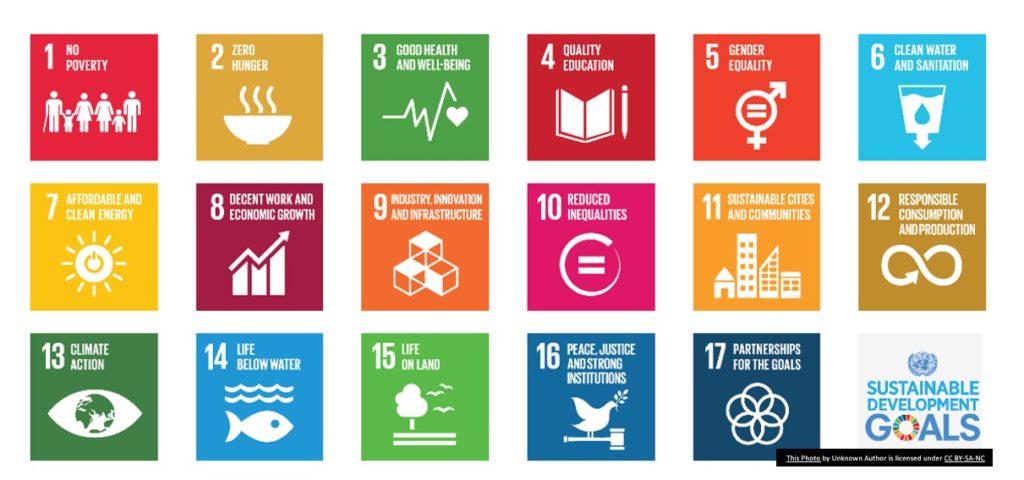
You can see that Molly and Kolby are working on Global Goals # 4 Quality Education and #10 Reduced Inequalities most directly. Attainment of both of these goals will have a direct impact on our ability to realize the other fifteen that all have roots in the need for racial justice worldwide Learn more at sdgs.un.org.
Thank you, Kolby and Molly, for your work to change your community and the world!
What about others? How are you working on racial justice and the Global Goals? Get in touch at the link below to let us know.
Podcast: Play in new window | Download
Subscribe: Spotify | iHeartRadio | Email | TuneIn | Deezer | RSS | More
